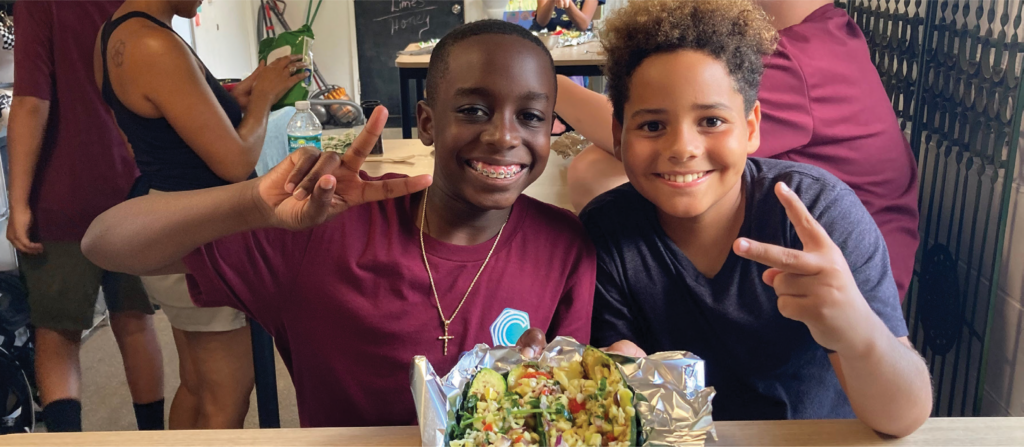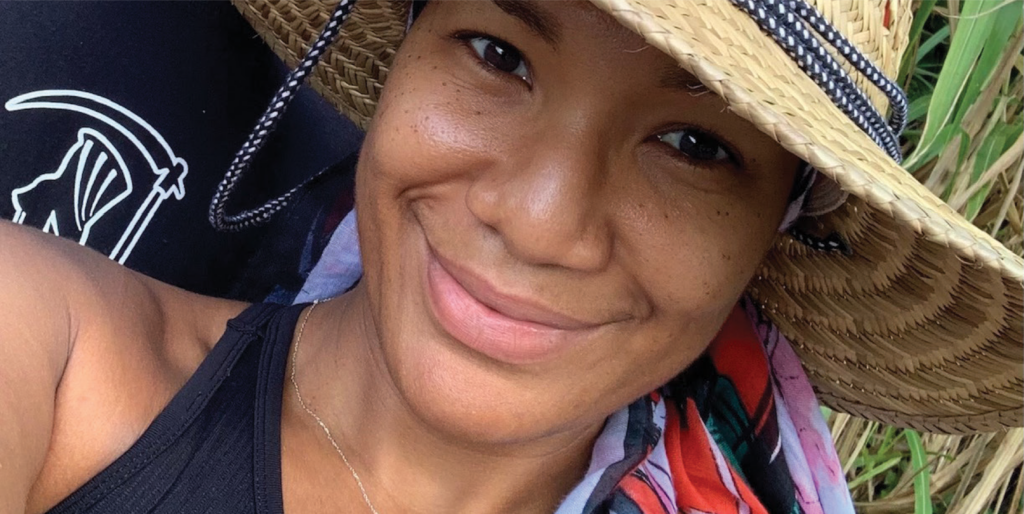
Editor’s note: This story is one of five spotlights included in our latest special report, “A Taste of À La Carte Learning.”
These middle school students at the Colossal Academy micro-school had a blast making zucchini boats under the guidance of Alicia Garcia, a former chef who now leads a unique educational provider called Project Flourish.
Project Flourish specializes in customized cooking lessons that go beyond cooking. Math, science, culture, trade, agriculture,
and everything else related to food are effortlessly weaved in.
“Food is applicable to every subject,” Garcia said. “It’s not just enrichment. It’s core. It’s life-changing.”
Garcia did not set out to be an educator.
She has a background in culinary arts and fashion design. But the pieces for what became Project Flourish began to click into place as she moved through a series of roles that involved cooking, teaching, and farming.
At one stop, she was the chef at a private school. At another, she was a home economics teacher. At yet another, her family lived on a farm. There, she made connections with other local farmers and became more engaged with sustainable agriculture.
What began as a part-time enterprise doing cooking lessons became full-time when COVID-19 descended in 2020. Project Flourish was born.
“The programming just exploded,” Garcia said.
Garcia began working with a growing number of microschools and co-ops in South Florida, customizing lessons to complement their distinctive approaches to teaching and learning.
At one, she focused on food literacy and food insecurity.
At another, the learning unit was built around cultural studies in different countries, so she designed cooking lessons that meshed.
At yet another, the students were learning about the Lunar New Year in some Asian countries. So Garcia supplemented that topic with a lesson that touched on everything from history to table settings to the symbolism of the colors involved. To top it off, the students made dumplings with bamboo shoots and water chestnuts.
In the meantime, the forward-thinking network of micro-schools and other providers in South Florida that Project Flourish has been a part of began to both grow and become more tight-knit.
“It’s been such a loving community of educators,” Garcia said. “They’ve been willing to embrace each other with a spirit of collaboration rather than competition.”
Project Flourish now serves more than 500 students each year. About half are in micro-schools, and the rest are affiliated with bookstores, community gardens, centers for after-school care, and other entities.
For the lesson at Colossal Academy, Garcia decided to focus on zucchini to celebrate the end of the summer growing season. (The lesson was in September.) Garcia described to the students, in general terms, what they were going to do.
StudiesBut she didn’t do the cooking. They did.
“The more you skill-build and learn,” she told them, “the less I do.”
The key to student success, she said, is agency.
Owning the learning leads to deeper learning.

The kids at Colossal grilled the zucchini to their liking; chose what other veggies to include in the filling; sliced and diced according to their preferences; figured out on their own what ingredients to include in the dressing; determined at each table how to accommodate each other’s likes and dislikes; and on and on.
“When it’s their creation, they have so much more to share,” Garcia said.
And mistakes are not a problem: “Was it too salty? That’s OK. We embrace mistakes. We talk about what worked and what didn’t. And we know we will work on it next time.”
Garcia is an education choice pioneer in more ways than one.
Her family is one of a growing number of “multiple choice” families in choice-rich states like Florida.
All four of her children began their education journeys as home-schoolers, then shifted to traditional public schools, magnet schools, charter schools, and private schools, depending on the best fit. Her oldest, who graduated from high school last year, used a state-funded scholarship for students with unique abilities.
As education choice continues to evolve, more and more parents will maximize the use of ESAs. This will give them the flexibility to choose a private school if that’s what they think is best for their children or to craft a more personalized program using a variety
of services and providers.
Those zucchini boats and smiles are a sign of things to come.


